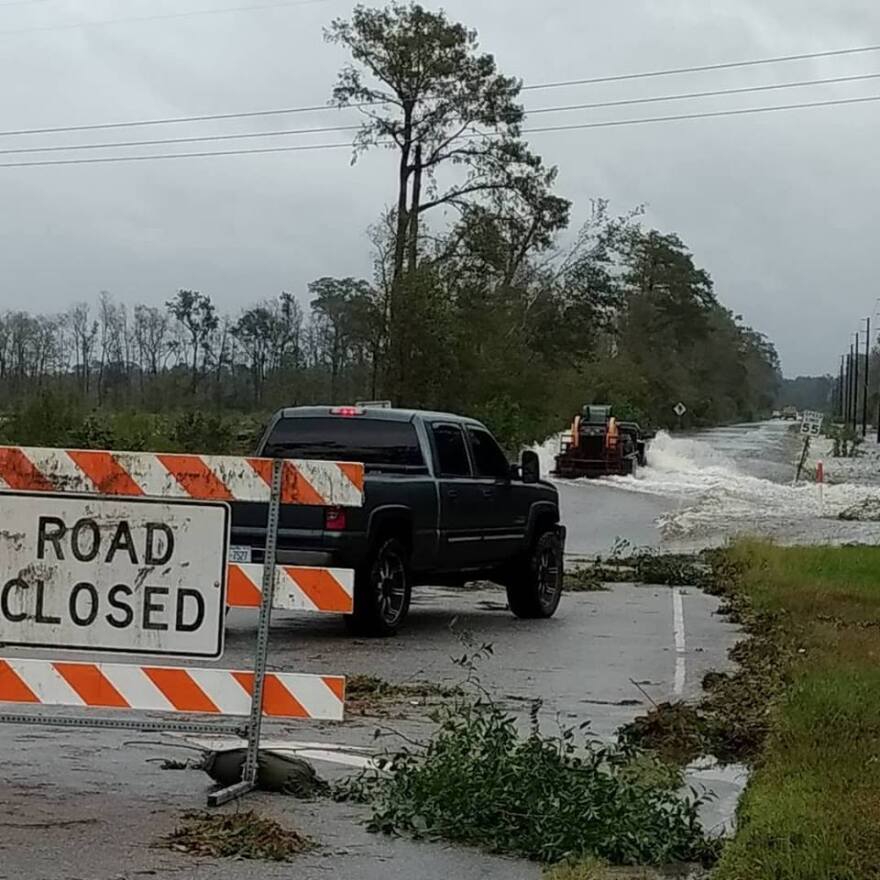The North Carolina state budget signed by Gov. Roy Cooper onThursday spends $800 million over the next two years on disaster recovery, flood prevention and other needs related to more intense storms and climate change.
The money — $425 million this fiscal year and $375 million — goes to state agencies and local governments. It will help pay for recovery from floods and planning to improve resilience against future disasters.

Will McDow of the Environmental Defense Fund said it's a milestone for North Carolina.
"This budget is the first that I know of that has proactively tried to address flooding, and the impacts of climate - induced floods, both for eastern North Carolina but really beginning to think about that for the whole state," McDow said.
The money will match federal disaster funding as needed and help local governments prevent damage from river flooding and coastal storms.
About $20 million will pay for shoreline stabilization on Oak Island, which is still recovering Hurricane Isaias in 2020.
Another $20 million will help draft a statewide Flood Resiliency Blueprint. The idea is to better predict where flooding will happen and help communities prepare, McDow said.
"This is a chance for the state to begin to produce actionable information for local communities to know what their threats are, and what their solutions could be ," Mc Dow s aid. "And then to provide a platform for the state to prioritize future investments to make sure that the most effective and efficient projects get funded for local communities . "
There's also money to develop natural flood barriers — including restoring wetlands — and to help local governments develop the information and skills needed to plan and apply for state and federal disaster and resiliency grants.
The budget also makes permanent the jobs of the state Chief Resilience Officer and two colleagues in the Office of Recovery and Resiliency, after three years of temporary funding. The office, which also has a fourth grant-funded position, advises state and local officials on projects and planning.
Read more in section 5.7 of the budget, starting on page 28.
Copyright 2021 WFAE


